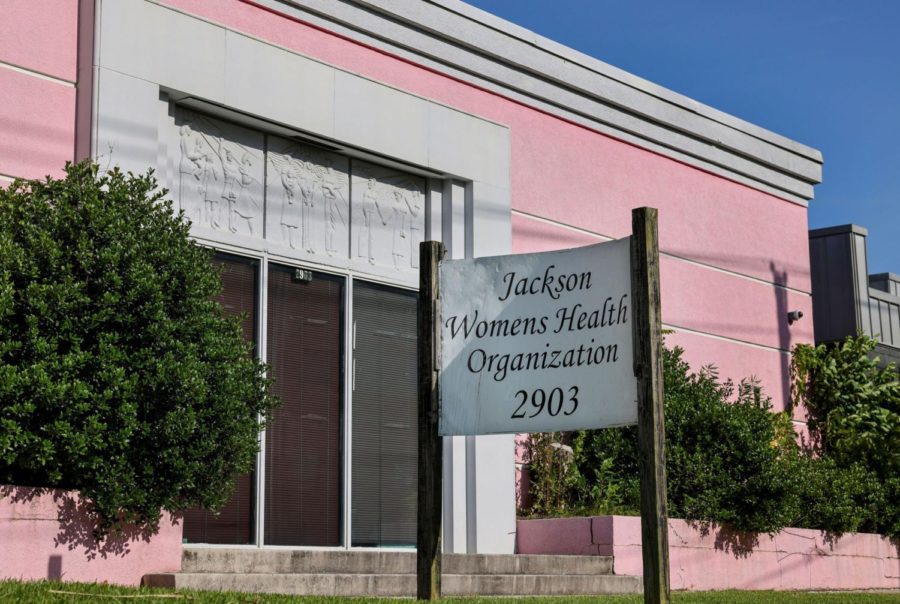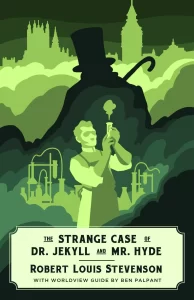Jackson v. Dobbs: Case Summary
The Jackson Women’s Health Organization main building in Jackson, Mississippi
January 20, 2022
With oral arguments heard on December 1st, 2021, “Dobbs v. Jackson Women’s Health Association” has officially arrived on the floor of the Supreme Court. Mississippi’s Gestational Age Act, one of the most restrictive abortion laws in the United States, is up for debate as Justices argue the constitutionality of abortion again. In the case, the only licensed abortion provider in Missisippi (Jackson Women’s Health Association) filed a lawsuit against the act. The law prohibits abortion after 15 weeks, “except in medical emergency and in cases of severe fetal abnormality” (the full text of the law is available here).
Likely contingent on the Dobbs v. Jackson decision is the fate of Roe v. Wade, the precedent decision which long protected the right to access abortion in the United States.
In the landmark 1973 case, Jane Roe (name fictionalized by the court to protect privacy) took Henry Wade, the then district attorney of Dallas, to court over a law dictating abortions only legal when the mother’s life was threatened. The court ruled 7-2 in favor of Roe, declaring abortion protected under the Constitution, specifically by the 14th Amendment.
In the majority opinion following the Roe v. Wade decision, then-Associate Justice Harry Blackmun wrote that “This right of privacy, whether it be founded in the 14th Amendment’s concept of personal liberty and restrictions upon state action, as we feel it is, or, as the District Court determined, in the Ninth Amendment’s reservation of rights to the people, is broad enough to encompass a woman’s decision whether or not to terminate her pregnancy.”
He then justified the Court’s decision on a practical level, noting what he called taxing and potentially psychologically harmful effects of pregnancy and motherhood, concluding: “Maternity, or additional offspring, may force upon the woman a distressful life and future.”
“The right of privacy, said the court, was a type of right to liberty,” said Professor Nancy Ehrenreich of University of Denver College of Law, regarding the 1973 decision. “Right to privacy is about getting to make your own, private decisions about whether to have children, whether to have a family, and that right was a liberty we all have (…) that’s the constitutional basis for all of the abortion jurisprudence that has happened since.”
In the dissenting opinion, Justice Rehnquist wrote “To reach its result, the Court necessarily has had to find within the scope of the 14th Amendment a right that was apparently completely unknown to the drafters of the Amendment,” arguing against the Court’s interpretation of the 14th Amendment.
In the Dobbs v. Jackson arguments (official transcript available here), Lawyer Scott G. Steward argued on behalf of Dobbs that the 14th Amendment interpretation that decided Roe v. Wade was unjust, much like Justice Rehnquist did in 1973. “Court looks to history and tradition,” said Steward, arguing the case should be decided based on exactly what the founders had intended when writing the amendment, assessing whether they intended abortion to be protected.
When questioned on what constitutional right protects the right to access abortion by Justice Clarence Thomas, Lawyer Julie Rikelman (representing Jackson Women’s Health Association) replied:
“It’s liberty, Your Honor. It’s the textual protection in the Fourteenth Amendment that a state can’t deprive a person of liberty without due process of law, and the Court has interpreted liberty to include the right to make family decisions and the right to physical autonomy, including the right to end a pre-viability pregnancy…that’s how the Court has interpreted the liberty clause for over a hundred years.”
However, questions other than that of the 14th Amendment may decide the fate of Roe v. Wade. One principle that may become definitive is that of tyranny of the majority, a concern that the Supreme Court is careful to guard against.
When tyranny of majority is in action, a majority group uses the popular vote to override the rights of a smaller and accordingly less powerful group with a smaller population.
“[…] We don’t get to vote on things that are going to harm vulnerable subsets of our population,” said Professor Ehrenreich. “In situations when we’re talking about fundamental rights, [the majority] doesn’t get to violate people’s fundamental rights, even if everybody in the legislature agrees [to do so].”
As applied to Roe v. Wade and the Dobbs v. Jackson case, prevention of tyranny of the majority may be what causes the Supreme Court to delegate the decision to themselves rather than leaving legal abortion as a decision for individual states. According to Professor Ehrenreich, there may be precedent for the court to do so, such as the Court’s decision to strike down laws prohibiting interracial marriage (Loving v. Virginia, 1967) and same sex marriage (Obergefell v. Hodges, 2015).
Should this be the case and the court remains responsible for the decision, the question will shift again to what constitutes a “fundamental right.”
In the case that Roe v. Wade is overturned by a ruling in favor of Dobbs, “trigger laws” in twelve states (Arkansas, Idaho, Kentucky, Louisiana, Mississippi, Missouri, North Dakota, Oklahoma, South Dakota, Tennessee, Texas, and Utah) will immediately ban abortion in the first and second trimesters except in cases of rape and incest. These laws, passed in the years following the Roe v. Wade decision, dictate that “should Roe v. Wade be overturned…” they will go immediately into effect.
Should these trigger laws be set in action, Professor Ehrenriech expects pro-choice people across the country will be “outraged and frantic”– according to an October, 2021 study by PBS, 59% of surveyed Americans are opposed to heartbeat bills, which regulate abortion based on when a heartbeat can be detected from the fetus (between 6½ to 7 weeks) and 71% oppose making it a crime for doctors to perform an abortion.
A decision on Dobbs v. Jackson is due at the end of the Spring term of 2022.















